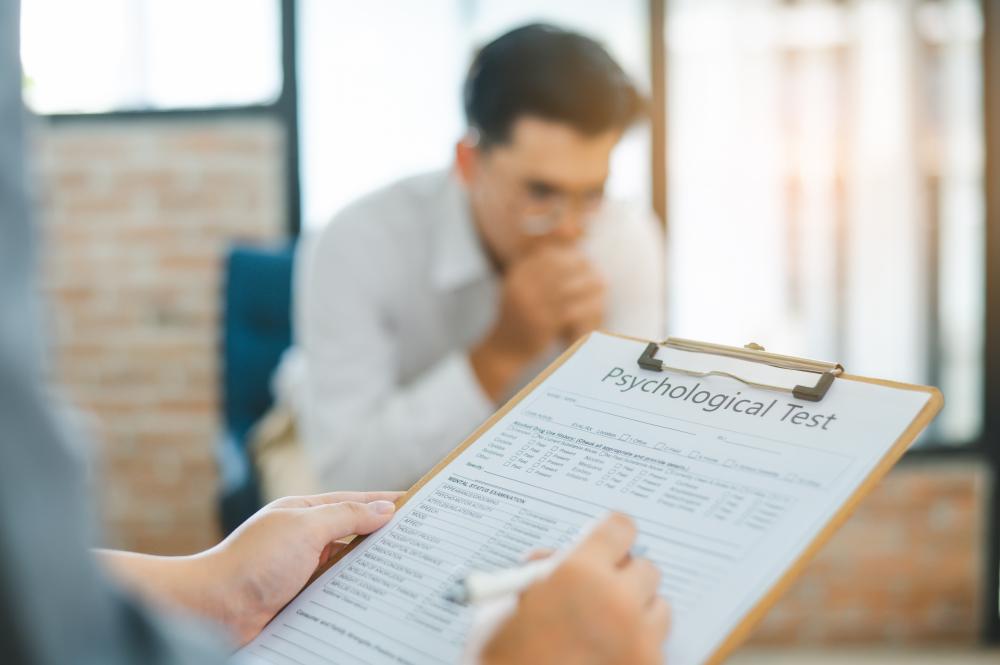The Importance of Dual Diagnosis Treatment for Addiction
In my 20-year journey at U Matter Detox and Addiction Treatment Center, I've seen firsthand how pivotal dual diagnosis treatment is. At its core, dual diagnosis involves concurrently addressing substance use disorders and underlying mental health issues. It's like swimming upstream if you tackle only one problem, leaving the other to drag you back. The landscape of los angeles dual diagnosis treatment highlights this unique approach, focusing not just on detox but on holistic healing.
In many instances, untreated mental health disorders such as anxiety or bipolar disorder can fuel addiction, creating a vicious cycle. It's like trying to heal with one hand tied behind your back. Recognizing these intertwined challenges early can significantly shift the recovery trajectory. Imagine tending to a garden; without addressing the roots, any plant will struggle to thrive. The same goes for dual diagnosis treatments.
How U Matter Detox and Addiction Treatment Center Addresses Dual Diagnosis
At U Matter, luxury meets efficacy in a setting that feels more like a sanctuary than a clinic. Our clients often remark on the privacy and personal attention they receive, a hallmark that distinguishes us in the vast landscape of los angeles dual diagnosis treatment. With en-suite rooms and tailored plans, we ensure that every individual feels truly seen and heard.
Our approach isn't just about addressing symptoms but diving deep into the core issues. We combine traditional methods with unconventional therapies like Sound Frequency Therapy and Brain Tap Therapy. Imagine recalibrating your mind and body much like tuning a musical instrument, ensuring harmony and balance.
One unique aspect of U Matter is our dedication to integrating ancient practices with cutting-edge science. For instance, pulsating electromagnetic fields and bio-resonance are modern wonders, but their essence lies in age-old principles. This blend offers a pathway to recovery that's as unique as a fingerprint.
What Are Some Success Stories from Our Center?
Our center has a track record of success stories where clients have turned their lives around, emerging stronger and more resilient. Jane, a former client, walked into U Matter with a dual diagnosis. Her journey was particularly challenging, encompassing years of substance dependency fueled by untreated PTSD.
Over the months, Jane embraced various therapies, particularly finding solace in our herbal tea blends and bio-resonance therapy. Today, she not only lives free of her addictive behaviors but also champions mental health awareness, helping others find their path.
For others, like Mark, the path involved grappling with their dependence on alcohol triggered by an underlying undiagnosed depression. Through our structured wellness support, fitness routines, and balanced nutrition, he found a new zest for life. His transformation wasn't just personal; it inspired his community back home.
Successes like these aren't just numbers to us; they're personal victories we celebrate. They reinforce the value of the comprehensive los angeles dual diagnosis treatment approach.
What Are Common Misconceptions About Los Angeles Dual Diagnosis Treatment?
A prevailing myth is that dual diagnosis treatments are merely an extension of traditional rehab. Some believe it to be a 'one-size-fits-all' model, but true healing is much more layered. Dual diagnosis isn't just a buzzword; it's a necessary protocol for sustainable recovery.
Another misconception is viewing mental health and addiction as separately functioning issues. They are two sides of the same coin. Ignoring one while treating the other is akin to overlooking the foundation while building a house. In los angeles dual diagnosis treatment, integration is key, and the treatment plans cater to both areas simultaneously.
Additionally, there's the myth that luxury facilities compromise on treatment quality. At U Matter, luxury isn't about opulence for the sake of it, but creating an environment conducive to healing where clients feel valued and respected. This environment enhances recovery, aiding clients in focusing on their true selves without distractions.
Exploring New Perspectives in Dual Diagnosis Treatment
Los Angeles, with its diverse populace and dynamic culture, offers a unique backdrop for pioneering treatments. Hugging the progressive edge, some centers have begun integrating tech advancements like AI-driven mood analysis or VR therapy for exposure treatment, a testament to evolving strategies.
One innovative avenue is the inclusion of spiritual healing practices. While it may sound unconventional, practices such as guided meditation sessions or chakra alignment are gaining traction. They serve as tools to build a deeper connection with oneself, fostering internal peace and understanding, crucial in the dual diagnosis framework.
Looking ahead, the future of los angeles dual diagnosis treatment seems promising with continuous research aimed at uncovering more efficient approaches. Whether through enhanced biofeedback techniques or personalized digital therapy applications, the commitment remains steadfast: offering hope and recovery to those in need.
Los Angeles will likely continue to be a forerunner in redefining how the world views dual diagnosis treatments. It's a city that has always been about reinvention, and this is no exception.
What Comprises an Effective Los Angeles Dual Diagnosis Treatment Program?
An effective los angeles dual diagnosis treatment program is multifaceted, addressing both mental health and addiction recovery simultaneously. This involves a careful balance of therapy, medication, and holistic support tailored to individual needs.
- Comprehensive Assessment: Initial evaluations to determine the full scope of dual conditions.
- Integrated Therapies: Combining cognitive-behavioral therapy and medication-assisted treatment.
- Personalized Care Plans: Tailoring strategies to fit individual challenges and goals.
- Holistic Approaches: Incorporating wellness routines, nutrition, and unconventional therapies.
- Continuous Support: Long-term aftercare and community reintegration plans.
These elements combine to ensure a well-rounded program that doesn't just treat symptoms but fosters genuine healing and recovery. Without addressing the core issues, the journey to sobriety can be fraught with setbacks.
- Attention to mental health
- Commitment to individual progress
- Comprehensive, curated plans


